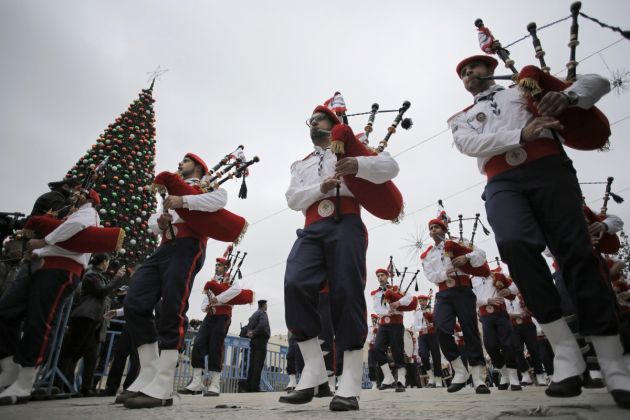Shrinking majority of Americans fully believe biblical account of birth of Jesus

Most U.S. adults believe the religious aspects of Christmas are emphasized less now than in the past – even as relatively few Americans are bothered by this trend, a new Pew Research Center survey finds.
In addition, a declining majority says religious displays such as nativity scenes should be allowed on government property.
And compared with five years ago, a growing share of Americans say it does not matter to them how they are greeted in stores and businesses during the holiday season.
They don't mind whether it is with "merry Christmas" or a less-religious greeting such as "happy holidays."
The survey comes as long-simmering debates continue over how American society should commemorate the Christmas holiday,
Not only are some of the more religious aspects of Christmas less prominent in the public sphere, but there are signs that they are on the wane in Americans' private lives and personal beliefs as well.
For instance, there has been a noticeable decline in the percentage of U.S. adults who say they believe that biblical elements of the Christmas story, that Jesus was born to a virgin, for example, reflect historical events that occurred.
And although most Americans still say they mark the occasion as a religious holiday, there has been a slight drop in recent years in the share who say they do this.
Currently, 55 percent of U.S. adults say they celebrate Christmas as a religious holiday, including 46 percent who see it as more of a religious holiday than a cultural holiday.
Then there are 9 percent who celebrate Christmas as both a religious and a cultural occasion.
In 2013, 59 percent of Americans said they celebrated Christmas as a religious holiday.
That included 51 percent who saw it as more religious than cultural and 7 percent who marked the day as both a religious and a cultural holiday.
Yet, while Americans' commemoration of Christmas may have less of a religious component now than in the past, the share of Americans who say they celebrate Christmas in some way has hardly budged.
Nine out of ten U.S. adults say they celebrate the holiday, which is nearly identical to the share who said this in 2013.
About eight-in-ten will gather with family and friends. And half say they plan to attend church on Christmas Eve or Christmas Day, little changed since 2013, the last time Pew Research Center asked the question.